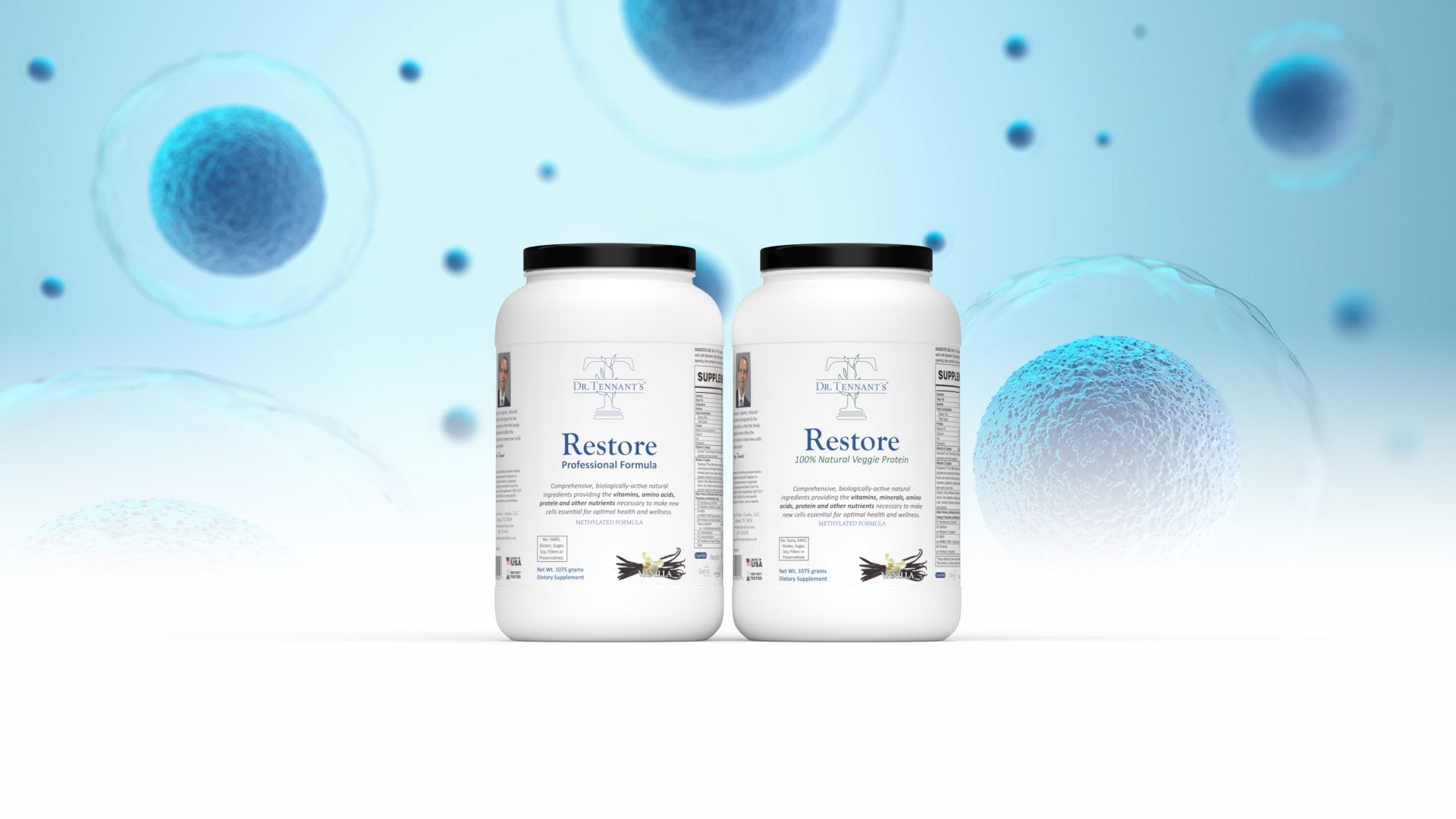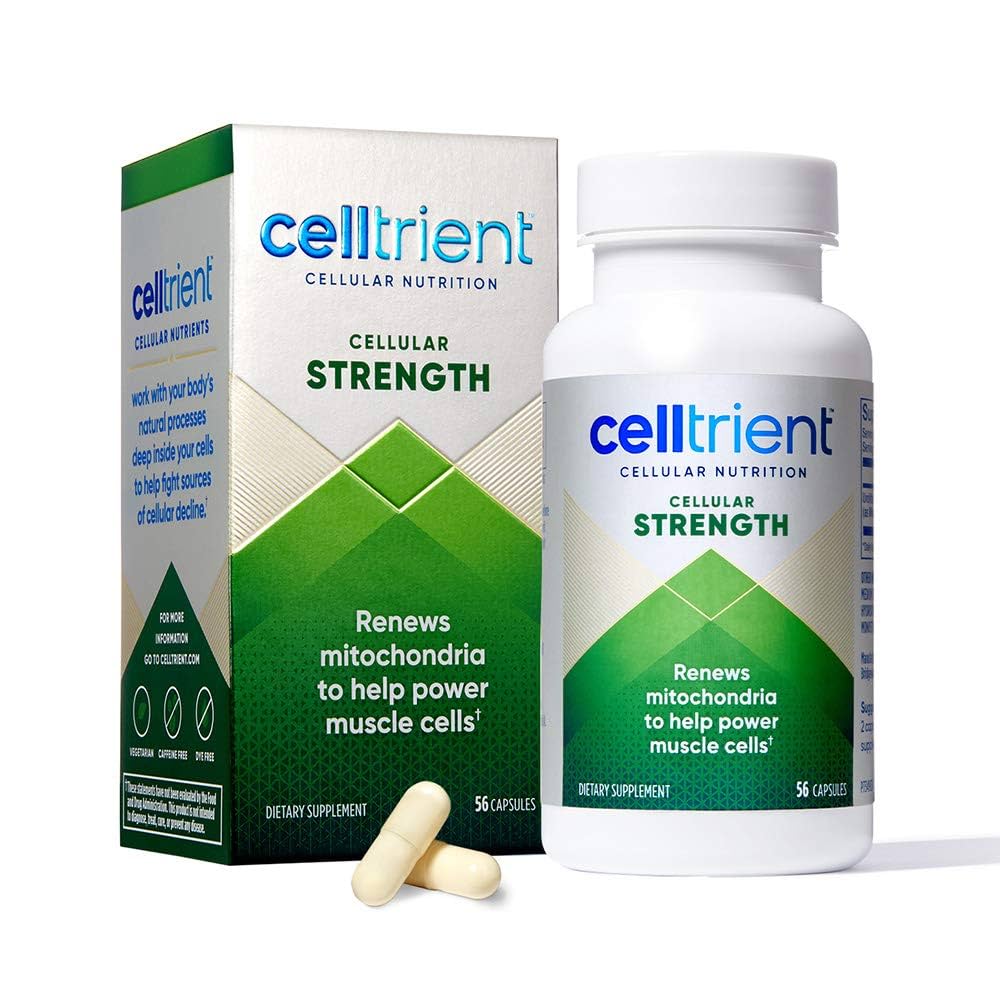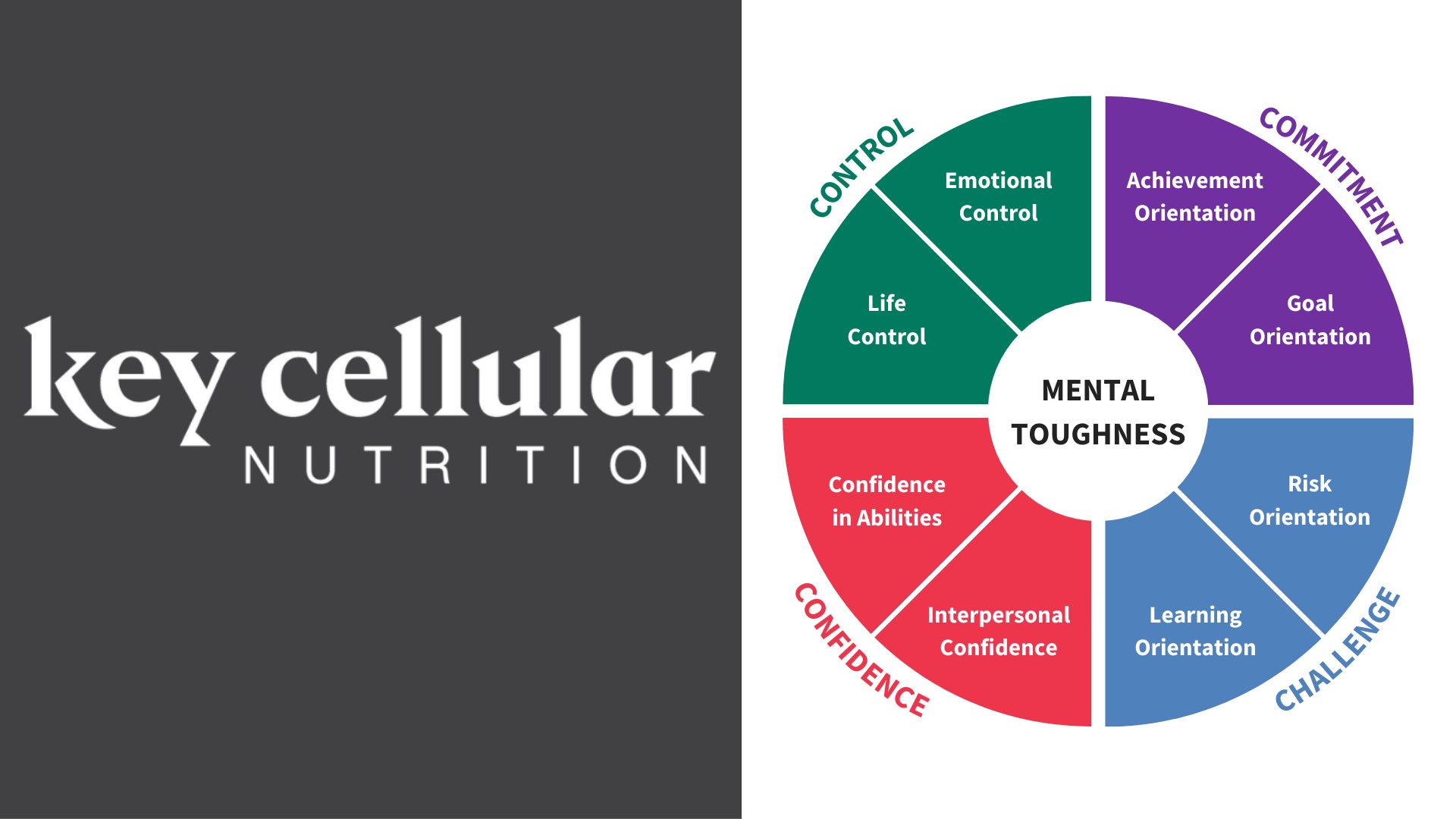Unlocking the secrets to longevity begins with understanding cellular nutrition. By nourishing our cells, we empower our mitochondria to function optimally, ensuring our bodies thrive. Moreover, recognizing the vital role of telomeres in aging allows us to take proactive steps towards a healthier future. As we delve deeper into how cellular health shapes our lives, it’s clear that integrating effective nutritional strategies can dramatically enhance our vitality. Join us on this journey to harness the transformative power of cellular nutrition and embrace a more vibrant life!
Understanding Cellular Nutrition: The Key to Vitality
Cellular nutrition serves as the cornerstone of our overall health and vitality. It involves supplying our cells with essential nutrients, enabling them to function optimally. By fueling our cells with the right nutrients, we enhance our body’s capacity for energy production, repair, and regeneration.
Here’s why understanding cellular nutrition is vital:
- Energy Production: Proper cellular nutrition directly affects how efficiently our mitochondria—often referred to as the powerhouses of our cells—generate energy. With adequate nutrients, these energy factories thrive, supplying us with the vigor needed for daily activities.
- Cellular Repair: Our bodies constantly face oxidative stress and damage from environmental factors. Robust cellular nutrition enables cellular repair mechanisms to function effectively, maintaining cellular integrity and longevity.
- Preventing Disease: Optimizing cellular nutrition can bolster our immune system and reduce the risk of chronic diseases, allowing us to live healthier lives.
To illustrate, let’s compare the effects of poor versus optimal cellular nutrition:
| Aspect | Poor Cellular Nutrition | Optimal Cellular Nutrition |
|---|---|---|
| Energy Levels | Low and fluctuating | Steady and sustained |
| Cellular Repair | Sluggish and sporadic | Efficient and proactive |
| Disease Resistance | Weakened | Strengthened through robust immunity |
In conclusion, grasping the importance of cellular nutrition allows us to take charge of our health, ultimately leading to a more vibrant, energetic, and longer life. Embrace it, and experience the transformation in your vitality!

The Power of Mitochondria: Energy Factories of Our Cells
Mitochondria, often referred to as the powerhouses of our cells, play a pivotal role in our overall health and vitality. These tiny organelles generate energy by converting nutrients into adenosine triphosphate (ATP), which fuels our cellular functions. To highlight their importance, consider the following insights about cellular nutrition and mitochondrial health:
- Energy Production: Mitochondria convert carbohydrates, proteins, and fats into energy, making them essential for daily activities. Enhanced cellular nutrition supports efficient mitochondrial function and, consequently, energy production.
- Oxygen Utilization: Mitochondria thrive in an oxygen-rich environment. Thus, maintaining optimal respiratory health directly benefits our energy levels.
- Role in Metabolism: When provided with proper nutrients, mitochondria contribute significantly to fat metabolism, promoting weight management and overall well-being.
| Function | Mitochondria’s Role | Importance of Cellular Nutrition |
|---|---|---|
| Energy Production | Converts nutrients to ATP | Fuels all cellular activities |
| Waste Removal | Removes byproducts like free radicals | Supports detoxification and cellular health |
| Cellular Signaling | Regulates metabolic pathways | Influences hormone balance and metabolism |
By cultivating cellular nutrition through a balanced diet rich in vitamins, minerals, and antioxidants, we empower our mitochondria to perform at their best. Thus, taking proactive steps to nourish these energy factories not only enhances vitality but also promotes longevity. After all, healthy mitochondria lead to a healthier, more energetic life!
Telomeres and Aging: Guardians of Our Genetic Legacy
As we delve into the realm of cellular nutrition, we uncover the pivotal role telomeres play in our aging process. Think of telomeres as protective caps on the ends of our chromosomes, akin to the plastic tips on shoelaces. They ensure genetic stability, allowing our cells to divide safely and efficiently.
Key Highlights of Telomeres and Aging
- Length Matters: Each time a cell divides, telomeres shorten. This progressive shortening leads to cellular aging and, eventually, the cessation of cell division.
- Influence of Lifestyle: Factors such as stress, smoking, and poor diet can accelerate telomere shortening. Conversely, a balanced intake of nutrients can help maintain telomere length.
- Cellular Nutrition’s Impact: A diet rich in antioxidants and nutrients supports cellular health and could potentially slow down telomere shortening. These essential components provide the cellular nutrition needed to protect and preserve our genetic legacy.
Telomeres vs. Aging
| Aspect | Telomeres | Aging Effect |
|---|---|---|
| Structure | Protective chromosome tips | Result of telomere shortening |
| Function | Maintain genetic integrity | Leads to cellular senescence |
| Influencing Factors | Nutrition and lifestyle | Environmental stressors and genetics |
By nurturing telomeres through optimal cellular nutrition, we can extend our biological youth and vitality. Thus, prioritizing the health of our telomeres stands as a powerful step towards longevity and overall well-being. Start embracing a lifestyle that celebrates your cellular health, and watch as it reflects in your vitality!
How Cellular Health Affects Longevity
Cellular health plays a pivotal role in determining our longevity. When our cells operate optimally, we thrive; however, impaired cellular function can accelerate aging and related diseases. By understanding the connection between cellular nutrition and longevity, we can make informed choices that promote a healthier, longer life.
Here are key aspects of how cellular health enhances longevity:
- Improved Energy Production: Healthy mitochondria ensure efficient energy production. This energy sustains vital functions, fueling everything from organ performance to daily activities.
- Protection from Damage: Effective cellular nutrition strengthens cell membranes and mitigates damage from free radicals, reducing the risk of age-related diseases.
- Cellular Repair and Regeneration: Sufficient nutrients empower our cells to repair and regenerate themselves, maintaining optimal function over time.
- Reduced Inflammation: Proper cellular nutrition helps regulate inflammatory processes, which can contribute to chronic diseases and accelerate aging.
Comparative Insight
| Cellular Health Factor | Impact on Longevity |
|---|---|
| Optimal Energy Production | Sustains essential functions |
| Cellular Repair | Maintain youthfulness |
| Inflammation Control | Lowers disease risk |
In conclusion, cultivating good cellular health through cellular nutrition not only supports energy levels but also enhances resilience against the natural aging process. By prioritizing our cell’s nutritional needs, we pave the way for a healthier, more vibrant future.
The Role of Antioxidants in Cellular Nutrition
Antioxidants play a critical role in cellular nutrition, serving as the body’s natural defense against oxidative stress. When our cells utilize energy, they produce free radicals—unstable molecules that can damage cellular structures. By incorporating antioxidants into our diet, we can actively combat these harmful substances and promote optimal cellular health.
Key Benefits of Antioxidants:
- Neutralize Free Radicals: Antioxidants donate electrons to free radicals, diminishing their potency and reducing potential cellular damage.
- Support Mitochondrial Function: By protecting mitochondria, the energy powerhouses of our cells, antioxidants ensure our bodies function efficiently, enhancing energy production.
- Promote Longevity: Research suggests that antioxidants may slow aging processes by safeguarding telomeres, the protective caps on our chromosomes.
Common Antioxidants to Include in Your Diet:
| Antioxidant | Sources | Benefits |
|---|---|---|
| Vitamin C | Citrus fruits, berries | Boosts immune function |
| Vitamin E | Nuts, seeds, green leafy veg | Protects cell membranes |
| Selenium | Seafood, whole grains | Supports thyroid function |
| Polyphenols | Dark chocolate, green tea | Reduces inflammation |
Incorporating these vital nutrients into your daily meals fosters a robust cellular nutrition framework, empowering you to thrive. By prioritizing antioxidants, you enhance your body’s resilience, which ultimately translates to improved health and longevity. Embrace the power of antioxidants, and watch your energy levels soar as you nurture your cellular vitality!
Nutrients for Mitochondrial Support: Fueling Your Energy
To unleash the full potential of your mitochondria, focusing on cellular nutrition is essential. These tiny powerhouses require specific nutrients to function optimally and support energy production. Here are some key nutrients that fuel your mitochondrial health:
- Coenzyme Q10 (CoQ10): This antioxidant plays a pivotal role in the electron transport chain, enhancing ATP production.
- B Vitamins (especially B1, B2, B3, and B5): Critical for energy metabolism, they help convert food into energy that fuels cellular processes.
- Magnesium: This mineral supports cellular respiration and energy production, acting as a co-factor for numerous enzymatic reactions.
- Alpha-Lipoic Acid: A powerful antioxidant that aids in mitochondrial function by protecting against oxidative stress.
- Omega-3 Fatty Acids: Found in fish oils, they contribute to the structural integrity of mitochondrial membranes and enhance their efficiency.
Comparison Table of Key Nutrients for Mitochondrial Support
| Nutrient | Primary Benefit | Food Sources |
|---|---|---|
| Coenzyme Q10 | Boosts ATP production | Meat, fish, spinach |
| B Vitamins | Energy metabolism | Whole grains, legumes |
| Magnesium | Supports cellular respiration | Nuts, seeds, leafy greens |
| Alpha-Lipoic Acid | Protects against oxidative stress | Spinach, broccoli |
| Omega-3 Fatty Acids | Enhances mitochondrial membrane function | Fatty fish, flaxseeds |
By incorporating these nutrients into your diet, you promote cellular nutrition that fuels your energetic lifestyle. Prioritize whole foods rich in these essential nutrients and feel the difference in your vitality and overall well-being. Embrace these changes, and energize your journey towards optimal health!
Lifestyle Choices That Optimize Telomere Length
Our telomeres, the protective caps at the ends of our chromosomes, play a vital role in cellular health and longevity. Making informed lifestyle choices can significantly influence telomere length and, by extension, our overall health. Here are key practices to consider:
- Balanced Diet: Embrace a diet rich in fruits, vegetables, whole grains, and healthy fats. Specifically, focus on foods high in antioxidants, which help counteract oxidative stress—one of the main culprits of telomere shortening.
- Regular Exercise: Engage in moderate to vigorous physical activity. Research suggests that consistent exercise positively impacts telomere length by enhancing cellular nutrition through improved circulation and nutrient delivery to cells.
- Stress Management: Chronic stress accelerates telomere shortening. Incorporate mindfulness practices such as meditation, yoga, or deep-breathing exercises to promote mental well-being.
- Quality Sleep: Aim for 7-9 hours of restorative sleep each night. Sleep is crucial for cellular repair and regeneration, which bolster telomere integrity.
- Avoid Smoking and Limit Alcohol: Both smoking and excessive alcohol consumption have been linked to accelerated telomere shortening.
By focusing on these lifestyle choices, you can enhance your cellular nutrition and promote the maintenance of healthy telomeres, paving the way for a longer, healthier life. Taking control of these aspects empowers you on your journey toward longevity!

The Connection Between Cellular Nutrition and Immune Function
Cellular nutrition plays a pivotal role in maintaining robust immune function. By fueling our cells with essential nutrients, we empower our immune system to ward off pathogens and facilitate healing. Here’s how this connection unfolds:
- Nutrients as Immune Protectors: Certain vitamins and minerals, such as Vitamin C, Vitamin D, and zinc, are crucial for the immune response. They help produce antibodies and promote the activity of immune cells.
- Antioxidants and Inflammation: Antioxidants found in cellular nutrition combat oxidative stress, which can lead to chronic inflammation. Reducing inflammation is vital because excessive inflammation can impair immune function.
- Gut Health Matters: A significant portion of our immune system resides in the gut. Nutrients such as prebiotics and probiotics support healthy gut flora, enhancing immune resilience.
- Protein and Immune Cells: Amino acids from dietary proteins are necessary for the production of immune cells. Ensuring adequate protein intake optimizes cellular nutrition and strengthens your defense against infections.
Comparison Table of Key Nutrients for Immune Function
| Nutrient | Role in Immune Function | Sources |
|---|---|---|
| Vitamin C | Enhances antibody production | Citrus fruits, bell peppers |
| Vitamin D | Modulates immune response | Sunlight, fortified foods |
| Zinc | Supports T-cell function | Meat, shellfish, legumes |
| Probiotics | Balances gut microbiome, boosts immunity | Yogurt, kefir, fermented foods |
By prioritizing cellular nutrition, you can create a resilient immune system that stands strong against illness, empowering you on your journey toward optimal health and longevity.
Cultivating a Cellular Nutrition Mindset
Embracing a cellular nutrition mindset empowers you to take charge of your health and well-being. When you prioritize cellular nutrition, you enhance not just your body’s functionality but also its longevity. Here’s how you can cultivate this transformative mindset:
- Education: Understand the fundamentals of cellular nutrition. Knowledge about how nutrients affect cellular function empowers you to make informed choices.
- Mindful Eating: Focus on quality over quantity. Opt for whole foods rich in vitamins, minerals, and antioxidants. Aim for a balanced diet that nourishes your mitochondria and supports healthy telomeres.
- Stay Active: Regular physical activity boosts mitochondrial function and promotes better nutrient absorption. Discover activities that energize you—be it yoga, running, or dancing.
- Stress Management: Chronic stress can hinder cellular nutrition and accelerate aging. Incorporate practices like meditation, deep breathing, or nature walks to maintain a calm and focused mind.
- Hydration: Remember that water is vital for nutrient transport within cells. Ensure you hydrate adequately to support cellular processes.
By adopting a proactive cellular nutrition mindset, you not only invigorate your cells but also create a foundation for a healthier, longer life. Remember, small, consistent changes lead to significant results over time. Start today, and watch your vitality flourish!
Future Research Directions in Mitochondria and Telomeres
As we delve deeper into the fascinating world of cellular nutrition, the future of research surrounding mitochondria and telomeres promises exciting developments. Scientists aim to unlock new insights that can redefine our understanding of aging and vitality.
Potential Areas of Focus:
- Mitochondrial Biogenesis: Researchers are exploring methods to stimulate the production of new mitochondria within our cells. This process could drastically enhance energy levels and combat age-related decline.
- Telomere Extension Techniques: Innovations in genetic engineering and pharmaceutical interventions could lead to strategies for extending telomeres. This could potentially slow down aging and improve overall cellular health.
- Interactions Between Mitochondria and Telomeres: Understanding how these two critical cellular components communicate and influence one another is vital. Enhanced mitochondrial function may protect telomeres from degradation, fostering longevity.
- Nutritional Interventions: Future studies will likely examine how specific nutrients can enhance mitochondrial efficiency and telomere protection, emphasizing the importance of cellular nutrition in healthy aging.
The Bigger Picture
Ultimately, advancing our knowledge of mitochondria and telomeres will empower us to develop strategies for extending not only lifespan but healthspan—ensuring that our later years are filled with vitality and purpose. Emphasizing a commitment to cellular nutrition can pave the way for a brighter, healthier future.

Empowering Your Journey Towards Longevity
Embarking on a journey toward longevity involves embracing cellular nutrition at every step. By prioritizing what you consume and how you live, you can significantly enhance your cellular health, leading to a vibrant, longer life. Here’s how to empower yourself:
- Educate Yourself: Understand the role of cellular nutrition in your overall well-being. Knowledge is power, and knowing how nutrients impact your cells helps you make informed choices.
- Adopt a Whole Foods Diet: Incorporate a variety of vegetables, whole grains, healthy fats, and lean proteins. These foods provide essential nutrients that support cellular nutrition and contribute to mitochondrial health.
- Stay Hydrated: Water is crucial for cellular function. Aim for adequate hydration to optimize your body’s cellular processes.
- Supplement Wisely: Consider adding antioxidants and specific supplements that enhance cellular nutrition. These can include Coenzyme Q10, Omega-3 fatty acids, and Vitamin D.
- Embrace a Healthy Lifestyle: Regular workouts, stress management techniques, and sufficient sleep play pivotal roles in cellular health.
- Monitor Your Progress: Evaluate your health regularly to see how your dietary and lifestyle changes are impacting your vitality.
By actively engaging in these practices, you become the architect of your longevity. Remember, cellular nutrition forms the foundation for a vibrant life—empower yourself with knowledge and choices that promote cellular well-being.
Frequently Asked Questions
What is cellular nutrition and how does it affect our overall health?
Cellular nutrition focuses on providing the essential nutrients needed at the cellular level to support optimal health. By ensuring our cells receive the vitamins, minerals, and other nutrients they require, we can enhance our body’s performance, vitality, and resilience. This emphasis on nourishing the cells not only boosts energy levels and promotes physical health but also protects against diseases, leading to a longer, healthier life.
How do mitochondria contribute to longevity?
Mitochondria, often referred to as the powerhouses of the cell, play a crucial role in energy production through the process of ATP synthesis. Their efficient functioning is essential for maintaining cellular health and overall vitality. As we age, the efficiency of mitochondria can decline, leading to decreased energy levels and increased fatigue. By optimizing mitochondrial health through proper nutrition and exercise, we can enhance energy production, reduce the effects of aging, and significantly improve longevity.
What role do telomeres play in the aging process?
Telomeres are protective caps located at the ends of chromosomes, serving to maintain genetic stability. Each time a cell divides, telomeres shorten, which is a natural part of the aging process. When telomeres become too short, cells can no longer divide effectively, leading to signs of aging and increased vulnerability to diseases. By focusing on telomere health through lifestyle choices and nutritional optimization, we can potentially slow down this process and promote a longer, healthier life.
How can I improve my cellular nutrition?
Improving cellular nutrition involves a multi-faceted approach that includes consuming a balanced diet rich in whole foods, incorporating a variety of colorful fruits and vegetables, and ensuring adequate intake of essential fatty acids and amino acids. Additionally, considering supplementation with antioxidants and other key nutrients can further support cellular health. Regular physical activity, sufficient hydration, and quality sleep also play essential roles in ensuring that our cells thrive and function optimally.
What are some key nutrients that support mitochondrial health?
Key nutrients that support mitochondrial health include B vitamins (such as B1, B2, B3, B5), Coenzyme Q10, omega-3 fatty acids, and antioxidants like vitamin C and E. These nutrients work synergistically to enhance mitochondrial function, boost ATP production, and protect against oxidative stress. Incorporating foods rich in these nutrients—like fatty fish, nuts, seeds, avocados, and leafy greens—can significantly enhance mitochondrial health, thereby promoting energy levels and longevity.

